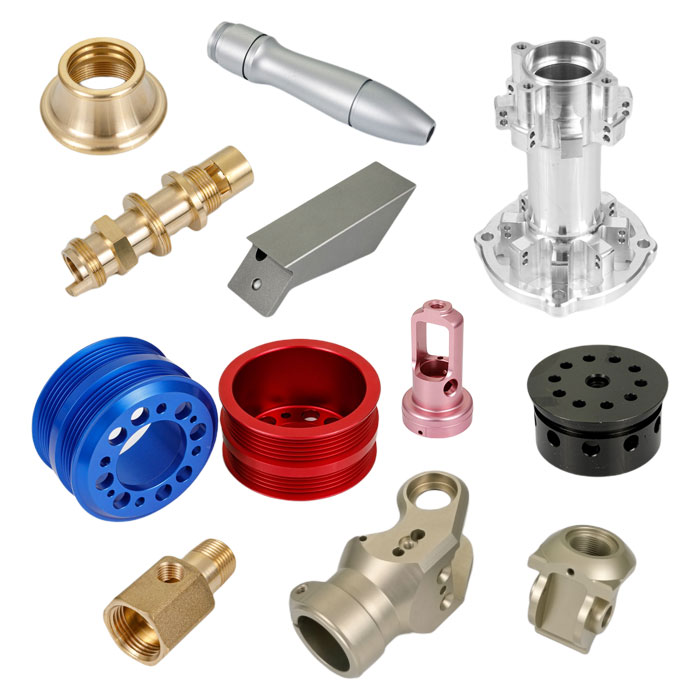Exploring Processing Technology: A Comprehensive Guide
2025-01-13
What is Processing Technology?
Processing technology refers to the methods and techniques used to transform raw materials or inputs into finished products or outputs. It encompasses a wide range of technologies and processes across various industries, including manufacturing, food production, electronics, pharmaceuticals, and more. Processing technology can involve mechanical, chemical, biological, or thermal processes to improve or alter the properties of materials, making them more suitable for specific applications or enhancing their performance.
What Are the Key Types of Processing Technologies?
Processing technology can be categorized into several key types, each suited for specific applications. These include:
1. Mechanical Processing: Involves physical processes like cutting, grinding, milling, or forming materials to change their shape or size.
2. Chemical Processing: Uses chemical reactions to transform raw materials into valuable products, such as in the production of chemicals, fertilizers, or pharmaceuticals.
3. Thermal Processing: Involves heating or cooling materials to modify their properties, such as in food preservation, metal processing, or the manufacturing of glass.
4. Biological Processing: Utilizes biological agents, such as bacteria, enzymes, or microorganisms, to process materials, especially in the food and beverage industry or waste treatment.
5. Electrical and Electronic Processing: Involves the use of electricity or electronic systems to shape, treat, or process materials, like in semiconductor manufacturing or signal processing.
Why is Processing Technology Important?
Processing technology plays a crucial role in modern industries as it:
1. Improves Efficiency: By optimizing processes and reducing waste, processing technology can help industries operate more efficiently and cost-effectively.
2. Enhances Product Quality: It ensures that products meet specific standards and requirements in terms of consistency, durability, and performance.
3. Supports Innovation: Advances in processing technology enable the development of new materials, products, and applications that were previously not possible.
4. Increases Sustainability: By improving energy efficiency and reducing environmental impact, modern processing technologies contribute to more sustainable manufacturing practices.
5. Boosts Production Capacity: Processing technology allows for higher volumes of production, which is essential to meet growing consumer demand in various sectors.
What Are Some Examples of Processing Technology in Different Industries?
Processing technology is used in many industries, each with unique applications and methods. Here are some examples:
1. Food Industry: Thermal processing (pasteurization, sterilization), fermentation, and drying are commonly used to preserve food products, extend shelf life, and enhance flavor.
2. Automotive Industry: Mechanical processing (milling, stamping), welding, and heat treatment are employed to create parts that meet precise safety and performance standards.
3. Electronics Industry: Semiconductor processing technology, such as photolithography, is used to create microchips that power our phones, computers, and other devices.
4. Pharmaceutical Industry: Chemical and biological processing technologies are used to produce medicines, vaccines, and other healthcare products with specific active ingredients and dosages.
5. Plastic Manufacturing: Injection molding, extrusion, and blow molding are commonly used to create plastic products for consumer goods, packaging, and construction.
How Does Processing Technology Improve Sustainability?
Processing technology has significant potential to reduce the environmental impact of industrial processes. Some ways in which processing technology contributes to sustainability include:
1. Energy Efficiency: Advanced processing techniques, such as energy recovery systems or more efficient machines, can help reduce energy consumption in production.
2. Waste Reduction: Technologies like recycling and waste-to-energy conversion help turn by-products and waste materials into valuable resources.
3. Water Usage Optimization: In industries like food processing, water-efficient technologies help reduce water consumption and minimize wastewater generation.
4. Use of Renewable Resources: Processing technology can enable the use of renewable raw materials, such as bioplastics or biofuels, reducing dependence on fossil resources.
5. Cleaner Production: Through advanced technologies such as green chemistry, industries can reduce hazardous chemicals and pollutants in their processes, contributing to cleaner and safer production.
What Are the Latest Trends in Processing Technology?
Several innovative trends are shaping the future of processing technology across various industries:
1. Automation and Artificial Intelligence (AI): Automation technologies, combined with AI and machine learning, are enhancing precision, reducing human error, and improving decision-making in processing operations.
2. 3D Printing (Additive Manufacturing): This revolutionary technology allows for precise manufacturing of complex parts directly from digital models, reducing waste and enabling customization.
3. Nanotechnology: The use of nanoscale materials and processes is enabling the development of new, highly efficient products and materials in industries like electronics, medicine, and energy.
4. Internet of Things (IoT): IoT devices are being integrated into processing systems to monitor, control, and optimize processes in real-time, resulting in increased efficiency and predictive maintenance.
5. Sustainable Materials and Green Technologies: There is a growing focus on using sustainable materials, such as biodegradable polymers, and green technologies that reduce environmental footprints.
What Are the Challenges Associated with Processing Technology?
Despite the advancements in processing technology, there are several challenges that industries face:
1. High Initial Costs: The investment required to adopt advanced processing technologies can be substantial, making it challenging for small to medium-sized enterprises to keep up.
2. Technical Complexity: Some processes, such as chemical or biological processing, require specialized knowledge and expertise, which may limit their widespread application.
3. Energy Consumption: Some processing technologies, especially in heavy industries, can still consume significant amounts of energy, raising concerns about cost and environmental impact.
4. Waste Management: Even with advancements in recycling and waste reduction, managing the by-products and waste of certain processes can still be a challenge, especially in industries like mining and metallurgy.
5. Regulatory Compliance: Many industries face strict regulations regarding safety, environmental standards, and quality control, which require ongoing adaptation to comply with ever-evolving requirements.
What Are the Future Prospects of Processing Technology?
The future of processing technology looks promising, with continued advancements in automation, AI, sustainable practices, and material science. As industries continue to seek ways to enhance efficiency, reduce costs, and minimize environmental impact, processing technology will play a pivotal role in shaping the future of manufacturing and production. We can expect to see more smart factories using AI and IoT to create optimized production environments and green technologies to lead to more sustainable industrial practices.
Conclusion
Processing technology is at the heart of modern industrial production, playing an essential role in the transformation of raw materials into finished products. Whether through mechanical, chemical, biological, or thermal methods, processing technology helps industries improve efficiency, quality, and sustainability. As technology continues to evolve, we can expect even more innovative solutions to address the challenges faced by industries and contribute to a more sustainable and technologically advanced world.



